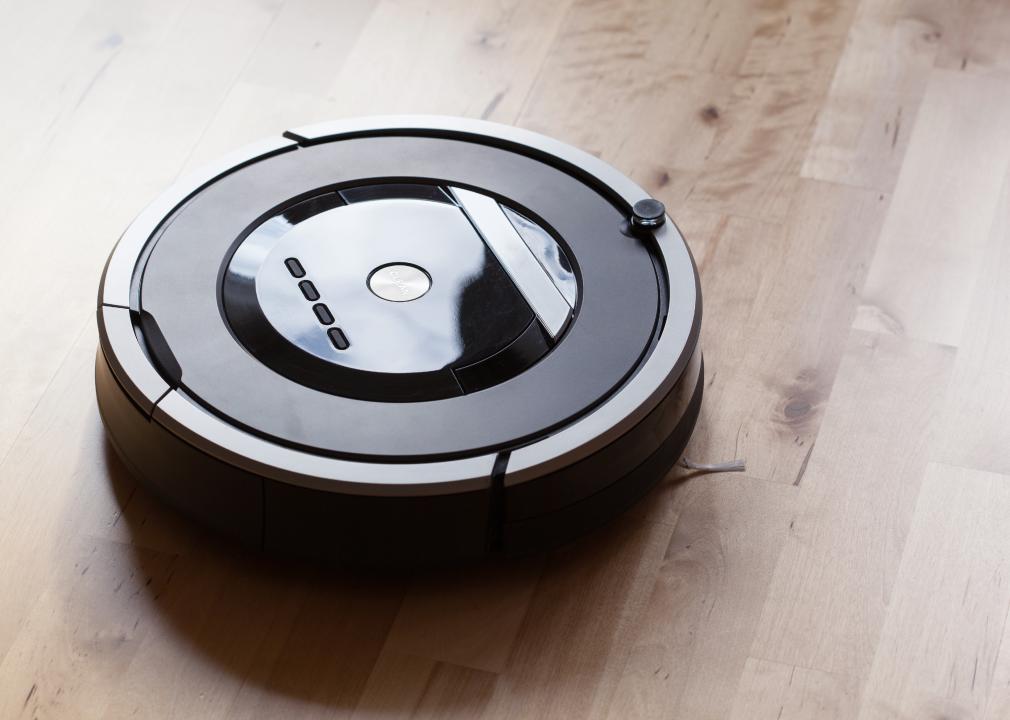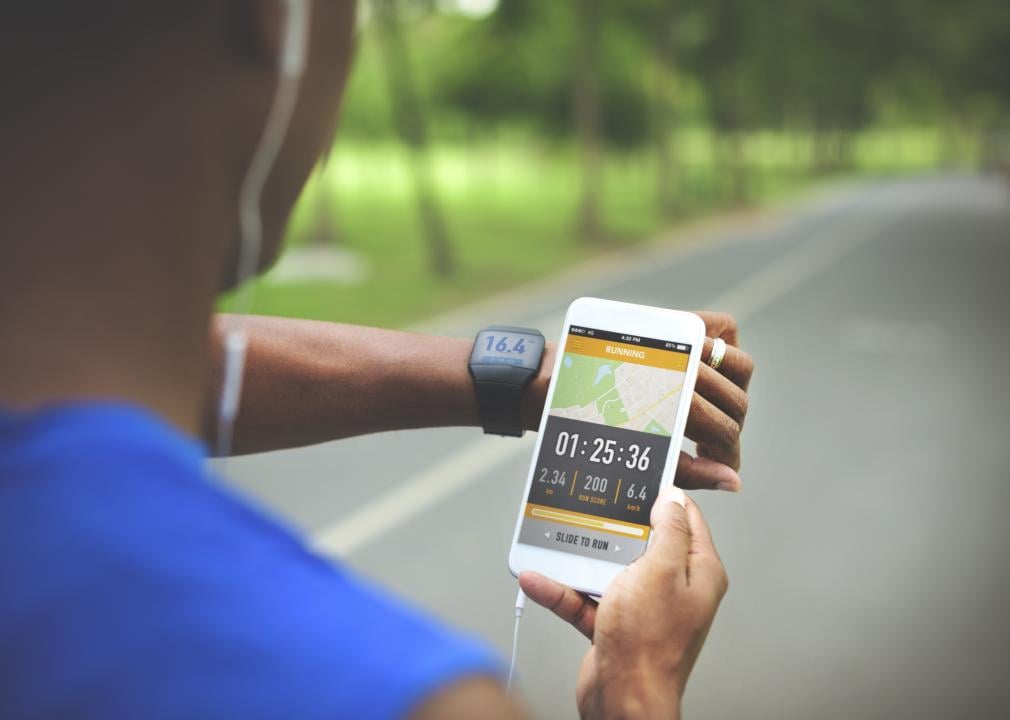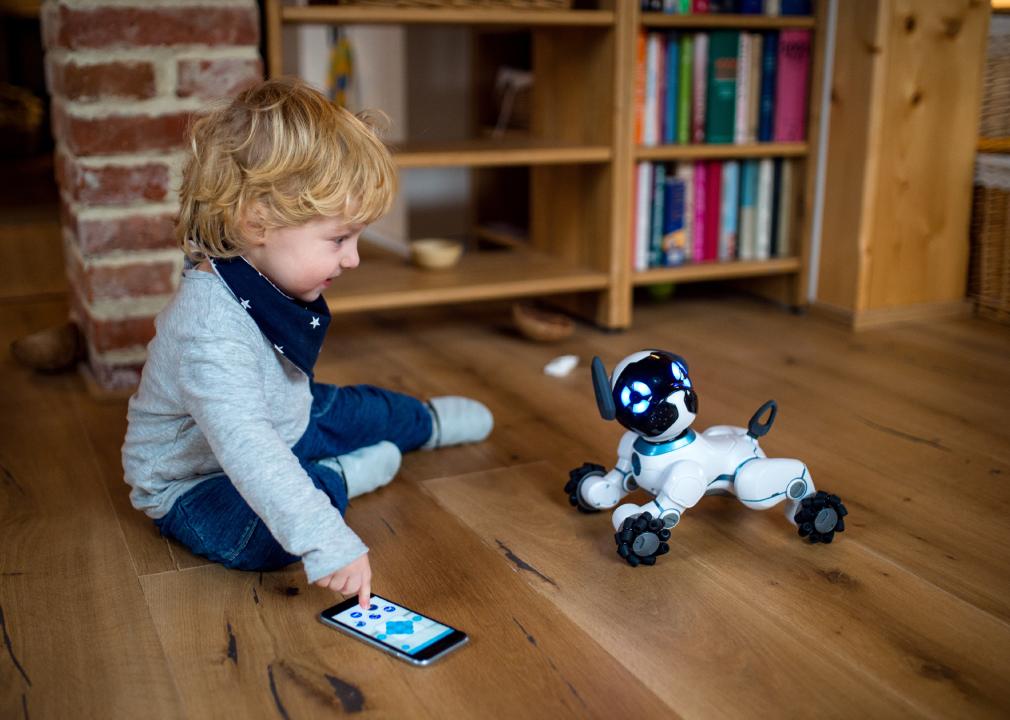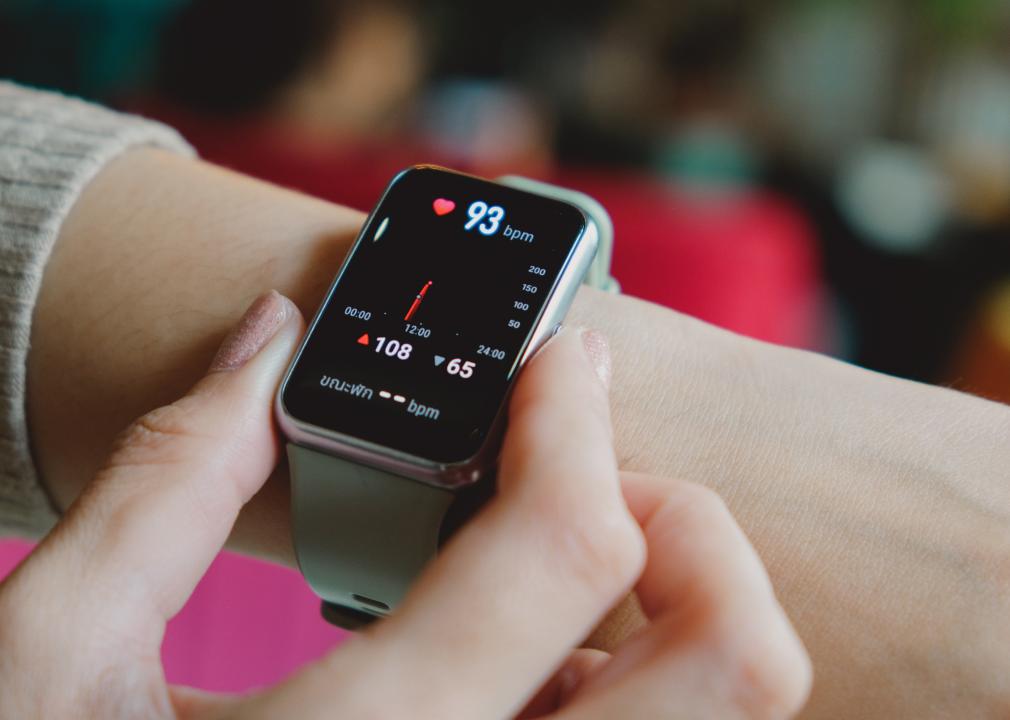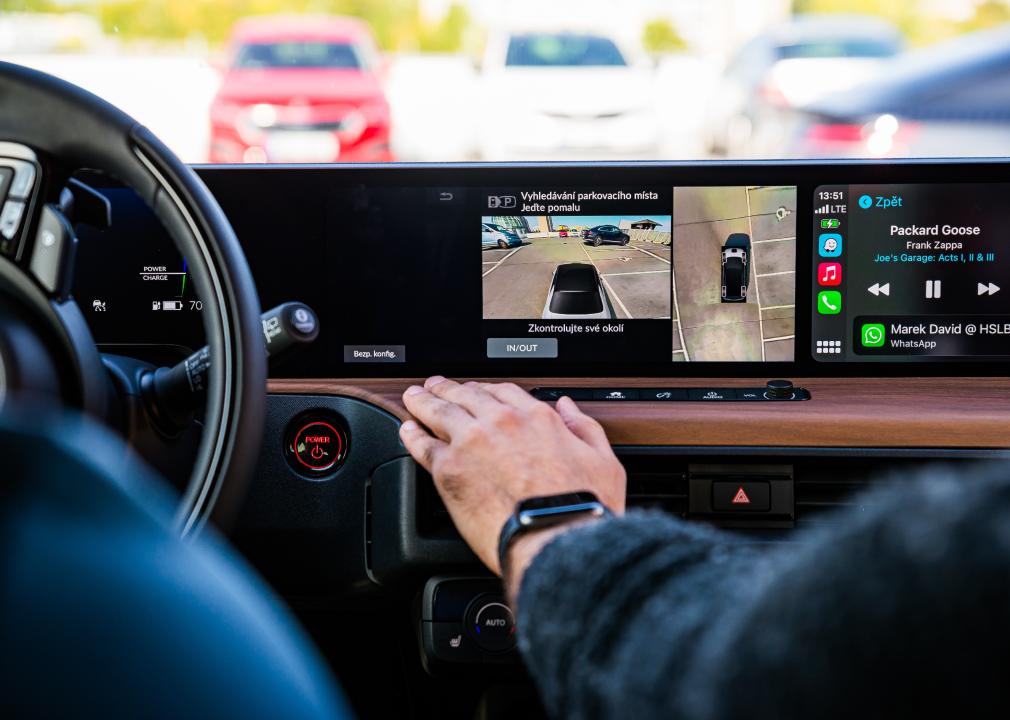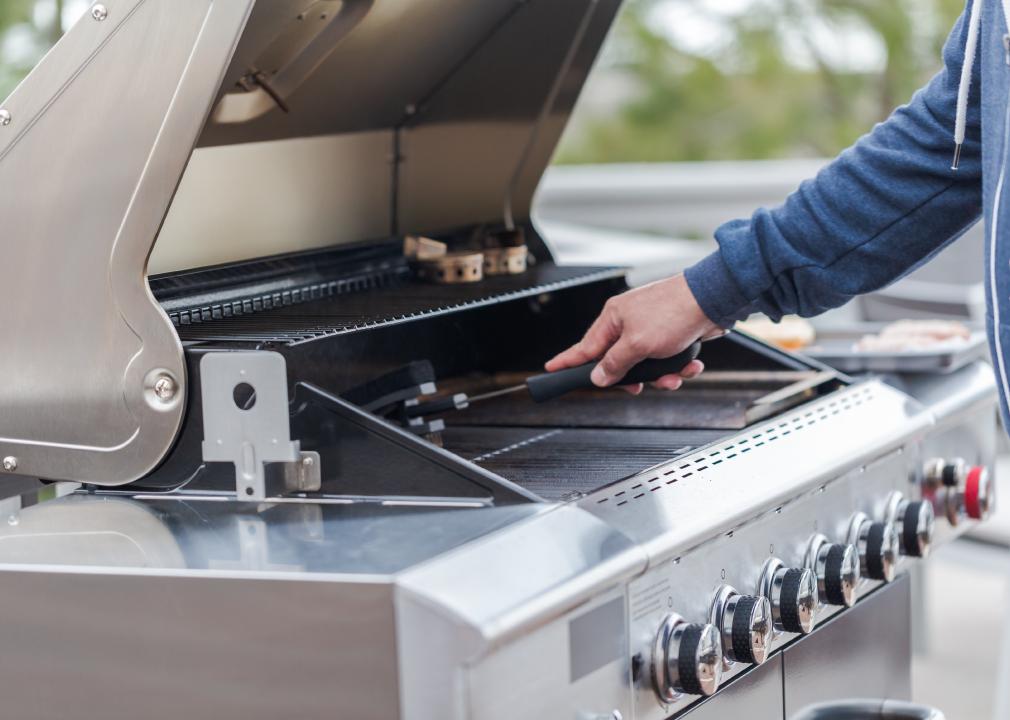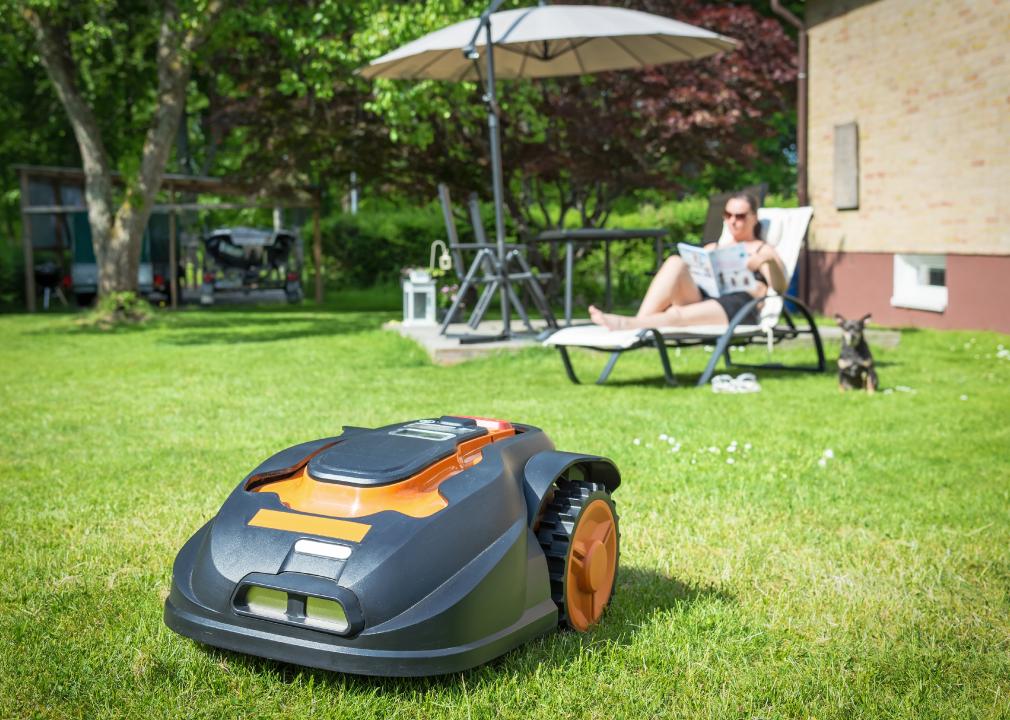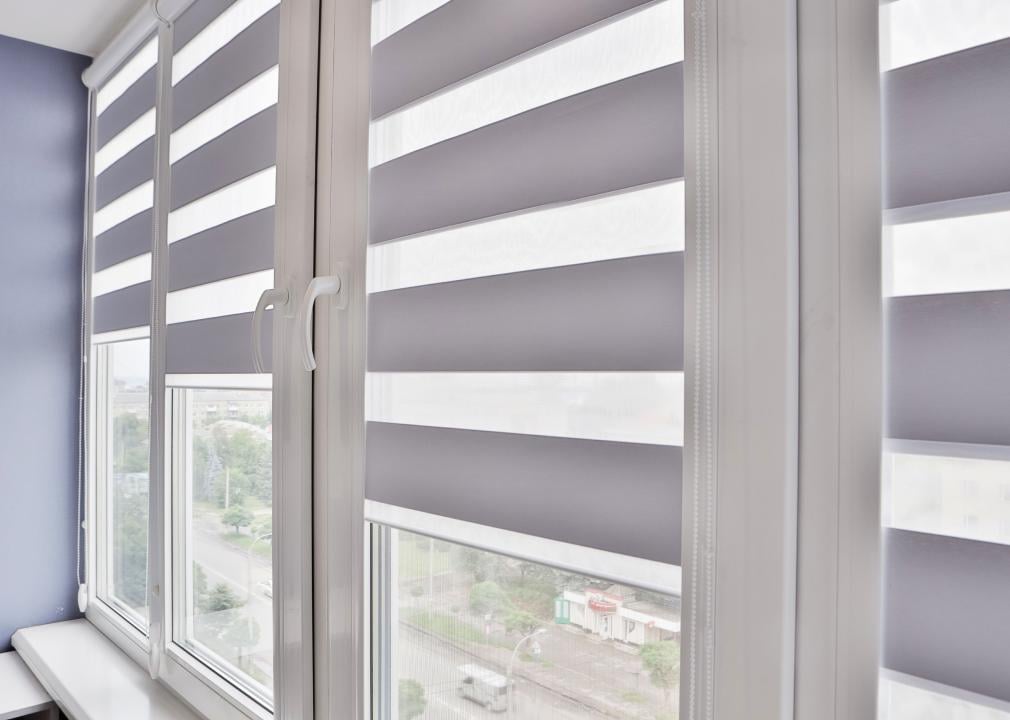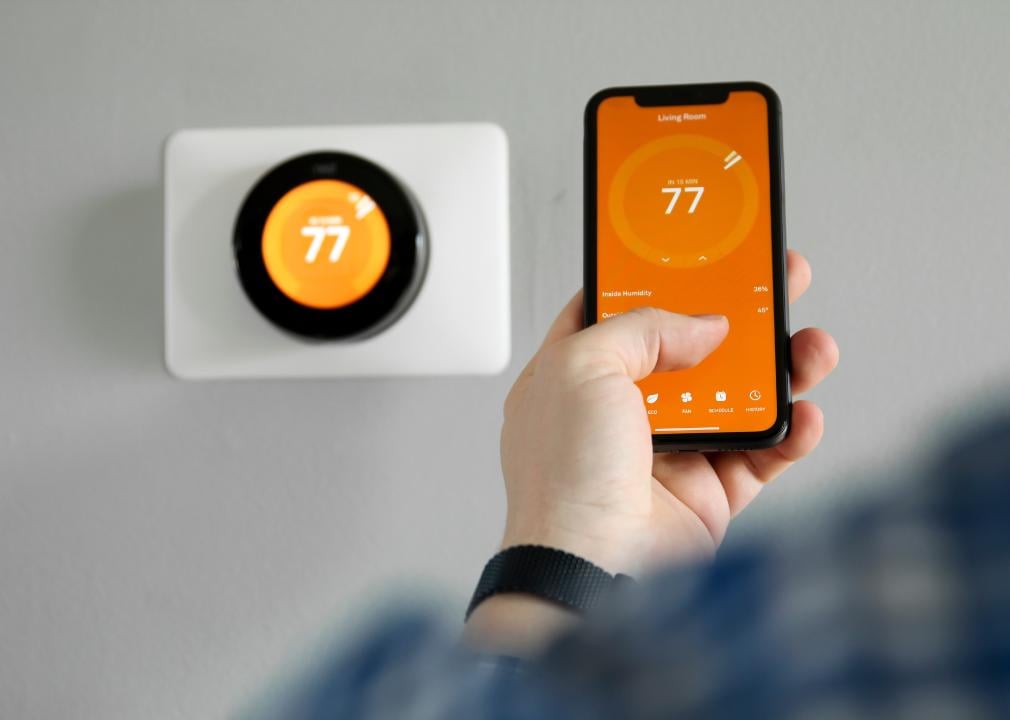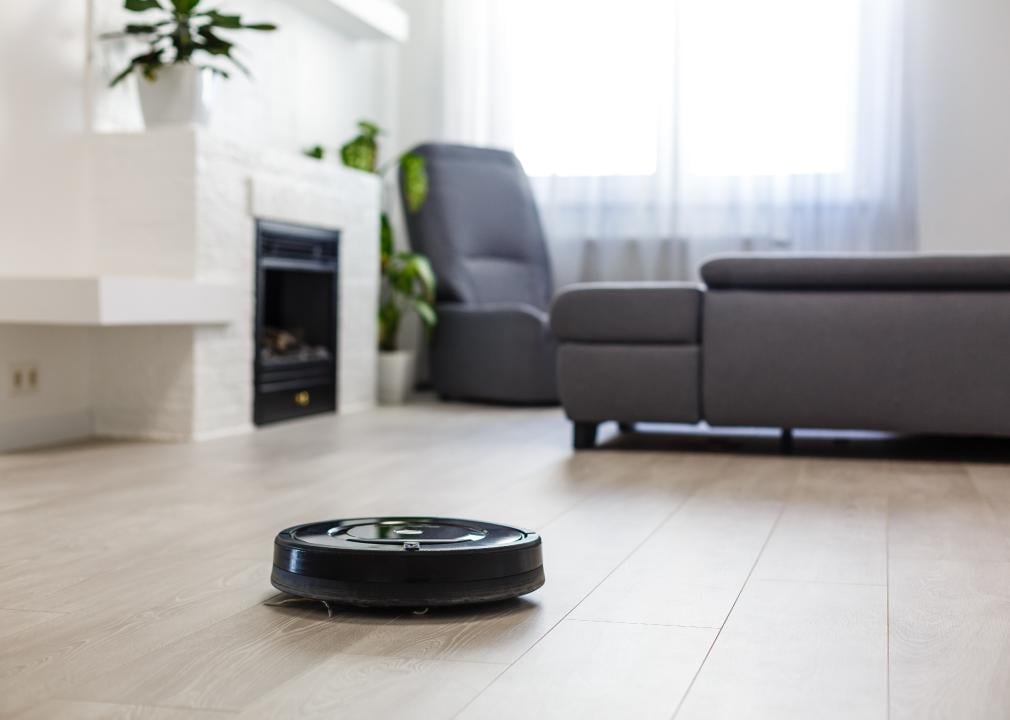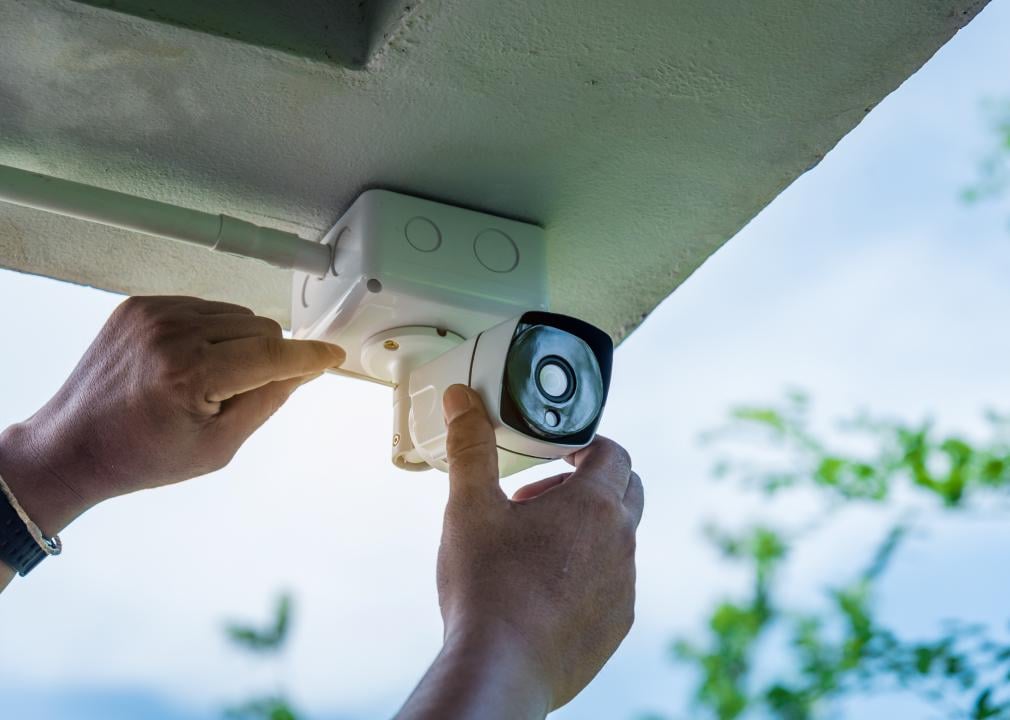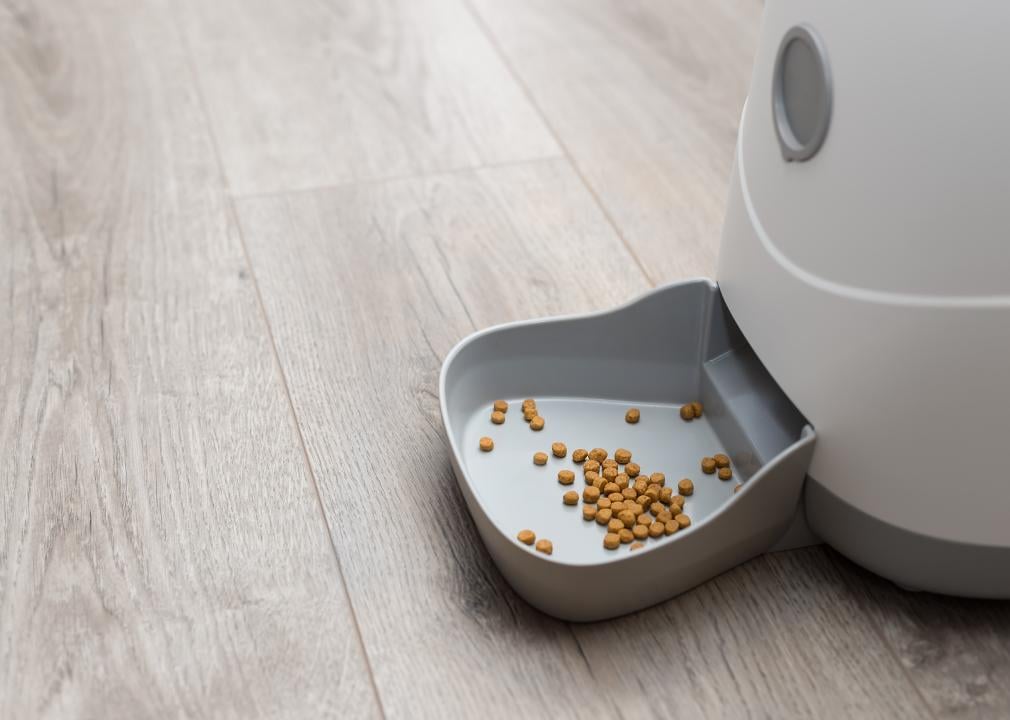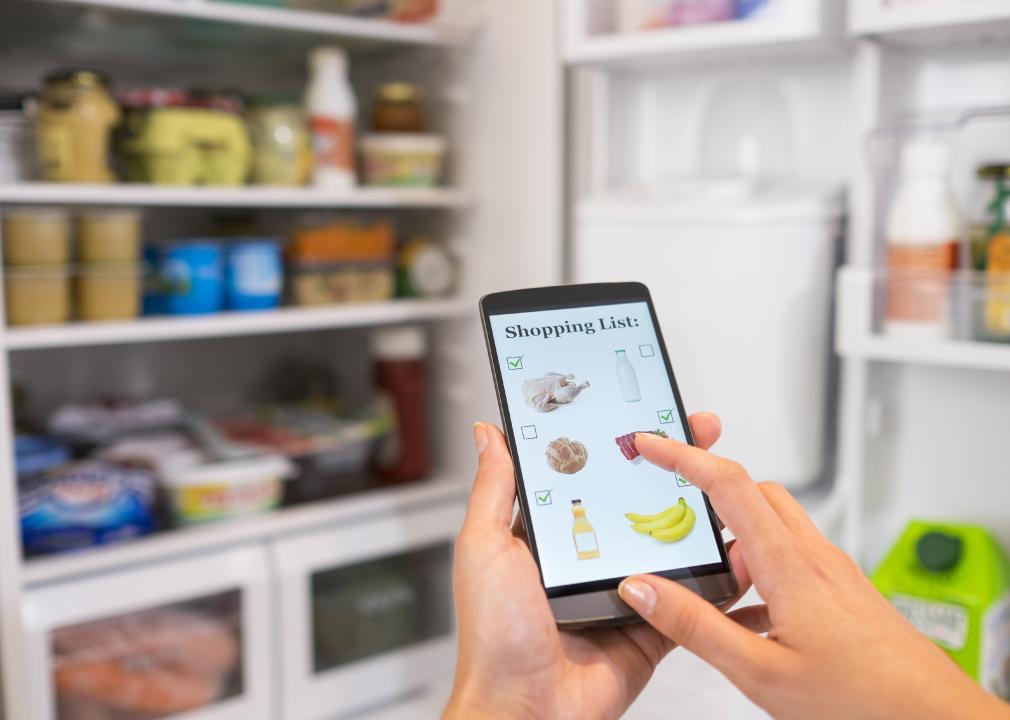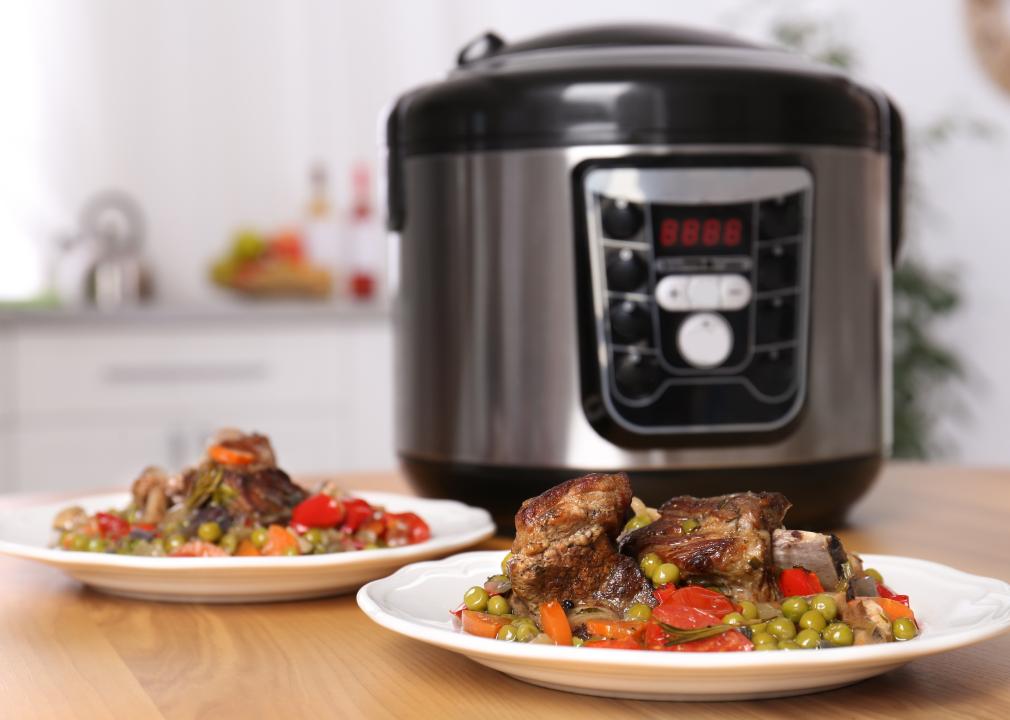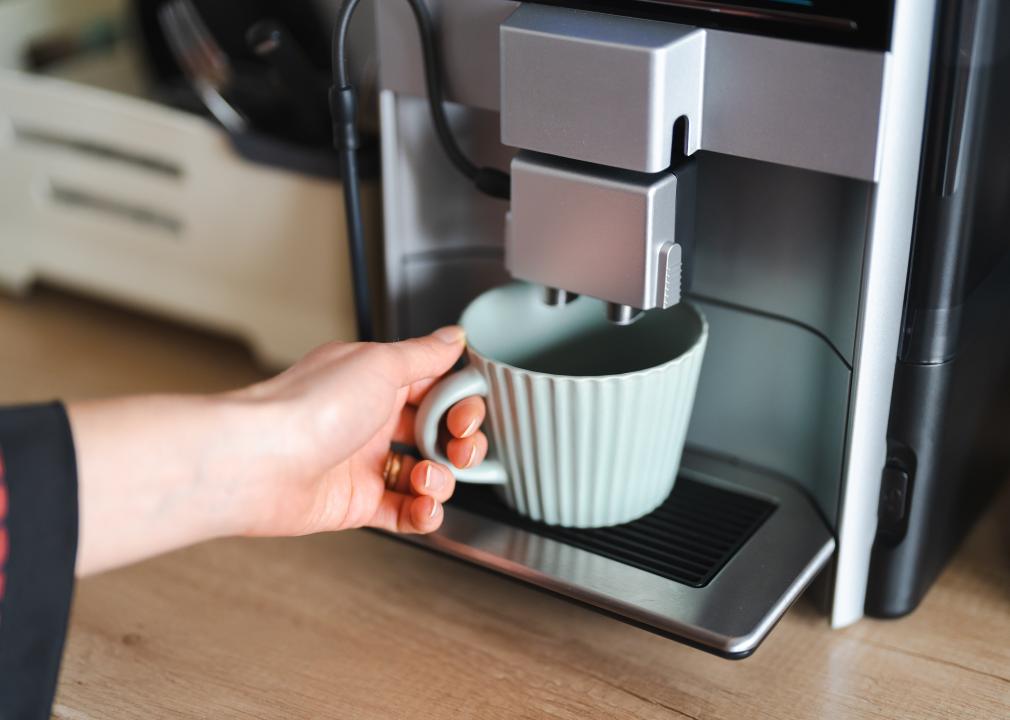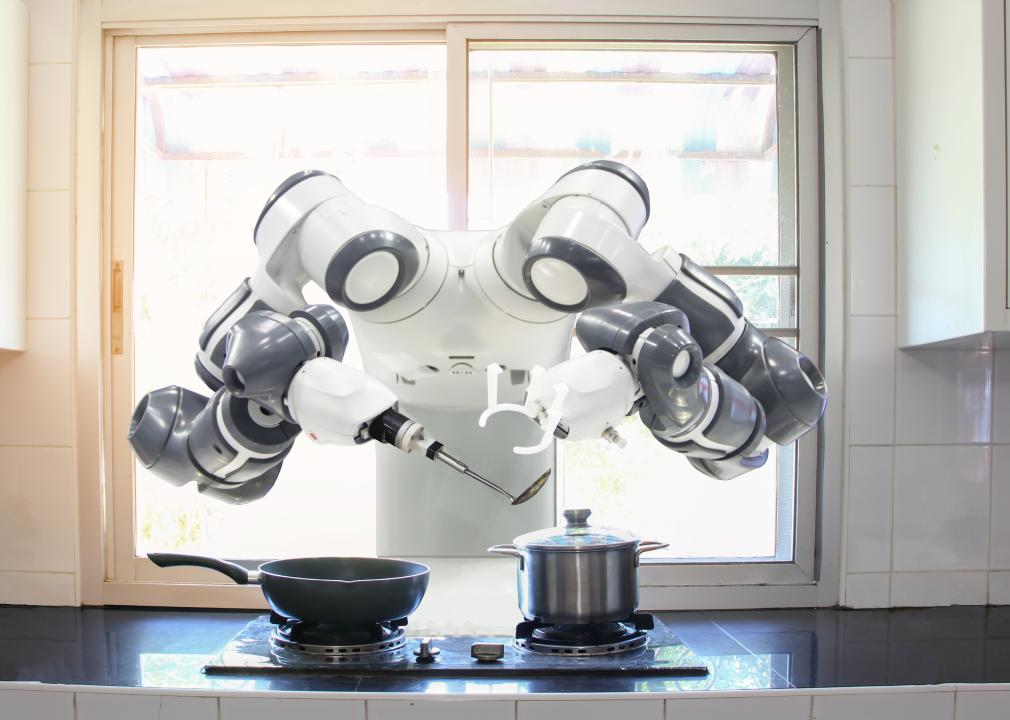20 everyday household tasks that can now be automated
Published 9:16 pm Tuesday, July 12, 2022
Olga Miltsova // Shutterstock
20 everyday household tasks that can now be automated
From smart devices to wearable tech, IoT Secure compiled a list of some of the most mundane household tasks that can now be automated. They range from cleaning your grill grates to making your morning cup of coffee.
The word “automation” is used today in a way that suggests apps or wifi connections, but at its core, it’s the term for anything that makes something recur without human interference. That means one of the oldest automated technologies is the clock, even predating any kind of mechanical clock to the days when people used water-drip and sand clocks to tell the time. Today, consumers are surrounded by wifi-equipped devices that track motion, images, and more.
In fact, clocks are a great way to track automation. Modern clocks started as complex mechanical devices that had to be wound in order to keep tension in the mechanisms—that’s what made them run. Imagine the first time someone used a battery-powered or even atomic clock and felt confident they were no longer “losing” 15 minutes a day. Now, the smartwatch uses a tiny, rechargeable battery to tell the time, track your heart rate, and display the recent contents of your smartphone.
Continue reading to learn of 20 everyday household tasks that can now be automated.
![]()
Rawpixel.com // Shutterstock
Fitness tracking
Fitness tracking used to involve a chest-strap heart monitor and some mathematics, or it required one to carry a mechanical pedometer that was not always even reliable. Today, between smartphones and smartwatches, users can track their heart rate and steps—trackers can even guess the exact physical activity being done.
Halfpoint // Shutterstock
Keeping kids entertained
Technology has enabled some of the best kids’ toys over time, like “toddler gyms” that have 20 different colored buttons and knobs for kids to poke and twist. Now, there are robots that will do things like automatically following a path drawn on the floor by using optics to recognize it.
Thaspol Sangsee // Shutterstock
Posting social media updates
There are a ton of use cases for automatic social media services where you queue posts in advance, from business owners who want to unplug for the weekend to families wishing to schedule a “Merry Christmas” message so they don’t interrupt Christmas morning. News sites already use these extensively to share the same new posts several times during the day.

fizkes // Shutterstock
Curating the daily news
If you don’t feel like reading them yourself, many websites and services now offer automated audio versions of their stories. And if they don’t yet, Google Assistant (or other similar services) will read them aloud instead.
Framesira // Shutterstock
Heart rate monitoring
Heart rate monitoring dates back decades, but the prevalent use by consumers we see today didn’t come around until the advent of super portable monitors like Fitbit watches. Previously, heart rate monitors had to be strapped around the entire chest and were less comfortable to wear.
marketa1982 // Shutterstock
Parking the car
It’s pretty simple to pull into an angled spot, while the success rate goes down a bit for perpendicular parking. Nearly half of U.S. drivers admit to a phobia of parallel parking, according to a 2021 poll administered by The Zebra. Parking assist uses cameras and lasers to easily, quickly do the dirty work of angling into a spot for drivers.
Arina P Habich // Shutterstock
Cleaning the grill
Cleaning the grates of a charcoal or gas grill is one of the most odious jobs of the summer season. Instead, pick up a grill cleaning robot, which is like a Roomba for your grates that methodically scrapes them clean.
Piotr Wawrzyniuk // Shutterstock
Mowing the grass
Robotic lawn mowers are surprisingly advanced even by the standards of being automated robots. They can use GPS and also be programmed to best perform on your individual lawn. The same technology is used by farm equipment manufacturers to program automated tractors.
triocean // Shutterstock
Cleaning the pool
Pool water is already cleaned automatically as water naturally circulates and is cleansed and filtered. But now, there are automated robots that track along the bottom of the pool to make sure the floor is just as clean as the water. Say goodbye to those mystery globs of mud and small leaves that gather down there.
Volodymyr Maksymchuk // Shutterstock
Pulling the shades
Blinds have had sophisticated controls for years, including blinds built between some double-pane windows. But now, like transition lenses in glasses or the streetlights on your block, blinds can use light-detecting sensors to modulate how they’re angled to best block, or let in, sunlight.
Saklakova // Shutterstock
Setting the thermostat
Smart thermostats are one of the oldest common consumer technologies to be automated for energy efficiency and lowering utility bills. They’re a huge help to people who work outside the home, for example, who don’t want the air conditioning on all day while they’re not at home.
Konstantin Kolosov // Shutterstock
Paying bills
Automatic bill pay can be a real lifesaver for people who tend to just forget in the shuffle of daily life, or even for people trying to stay independent in the face of medical memory problems. These services set up recurring bank drafts at the same time each month. It’s easy for companies to run a thousand credit cards in one batch, and they have to chase fewer customers for late bills.
Andrew Angelov // Shutterstock
Vacuuming and mopping
Robot vacuums and similar devices for mopping have rapidly grown in popularity in the last 10 years. These devices travel on an angled trajectory, which means they eventually cover your whole room.
Gorodenkoff // Shutterstock
Controlling lights
Smart light switches are a great energy saver and can also reinforce safety around your home. They can work on a basic timer, ensuring the lights are always on even if you get home really late. They can also be set to come on at sundown, like streetlights, so your doorway is never dark.
APChanel // Shutterstock
Securing your home
Automated home security can come in different forms depending on the system or goal. Some use cameras and lights with motion detectors, ensuring that any moving things in your yard are caught on film. Others use sensors to tell if anyone is touching your windows or approaching your back door.
Mila Naumova // Shutterstock
Feeding the pets
Some pets only need to be fed once or twice a day—or even less frequently, like snakes, which only eat weekly. But for pet owners going on vacation or those whose animals need to eat more slowly over time, automatic feeders are a great way to dispense portions of food at set times.
LDprod // Shutterstock
Writing shopping lists
Smart fridges can do things like telling users if someone has left the door open. The most advanced smart fridges can go beyond that, monitoring specific groceries and even making a shopping list based on what’s in it and how long it will last.
New Africa // Shutterstock
Slow cooking dinner
In a way, the Crock-Pot slow cooker is the original smart appliance. It allowed people to start dinner in the morning before work so they could come home to a homecooked meal. Today’s automated multicookers can do things like cook food in phases that require different temperatures.
Arthur Bargan // Shutterstock
Brewing coffee
The automatic coffeemaker is extremely useful for workers, saving key minutes and fuss first thing in the morning. With a reservoir for coffee beans and a water supply, the coffeemaker can start itself up and make a pot at a scheduled time every day.
PaO_STUDIO // Shutterstock
Personal home assistant (almost)
Personal home robots still have a long way to go, but technology is beginning to come together. Some of these robots can now do little errands in the home, like retrieve beverages from the kitchen. One of the most complex tasks in robotics is creating large robots that can do multiple things, including how exactly these robots move around inside the home while navigating curves, stairs, shoes left by the door, and more.
This story originally appeared on IoT Secure and was produced and
distributed in partnership with Stacker Studio.


